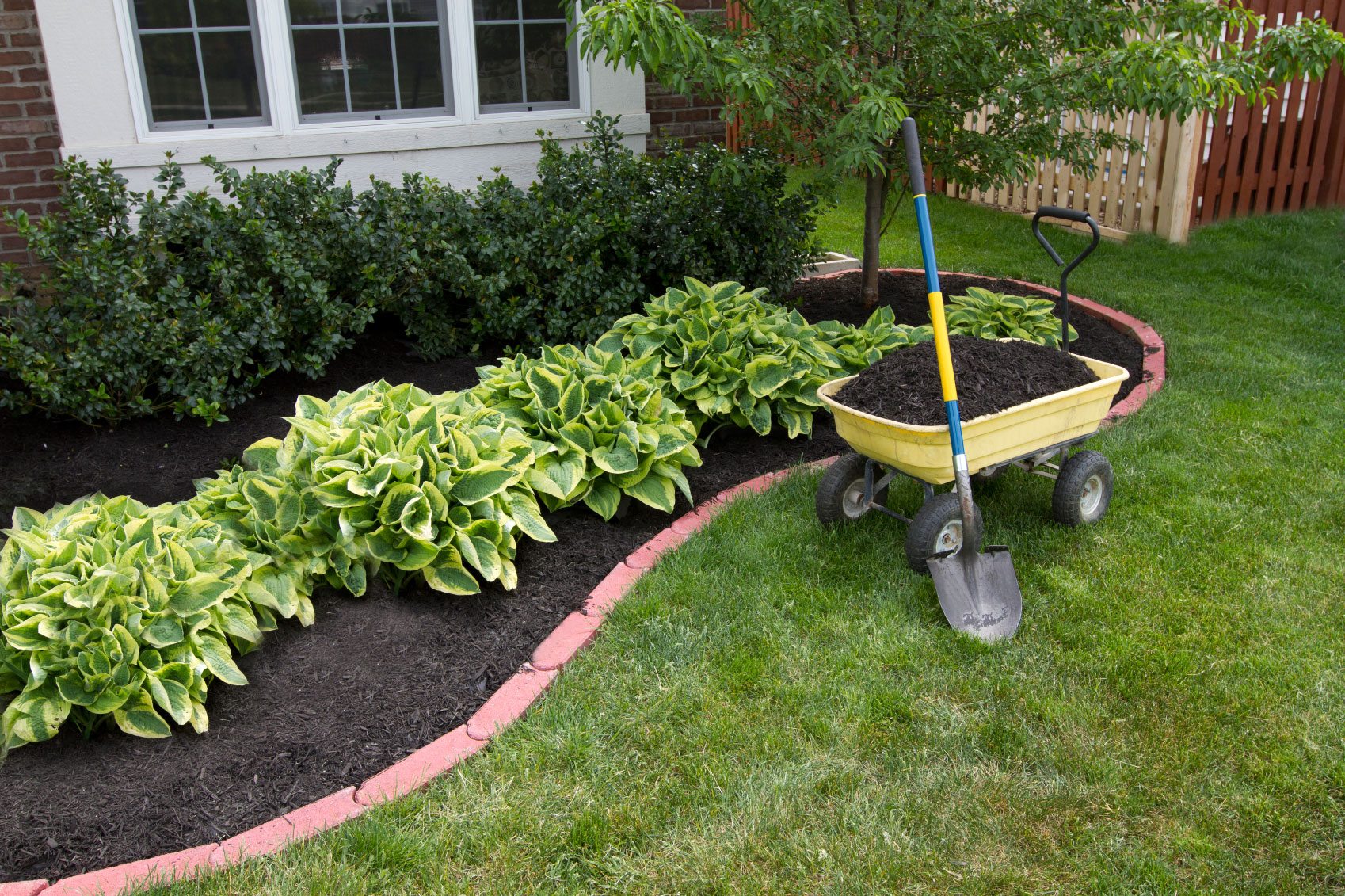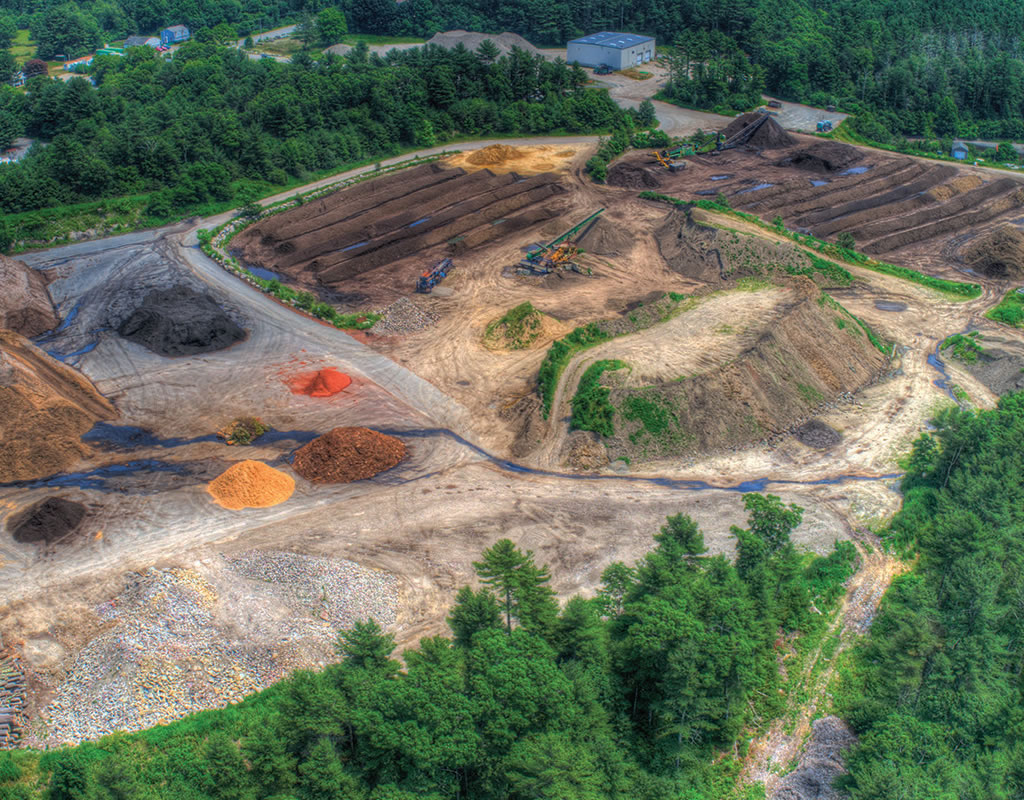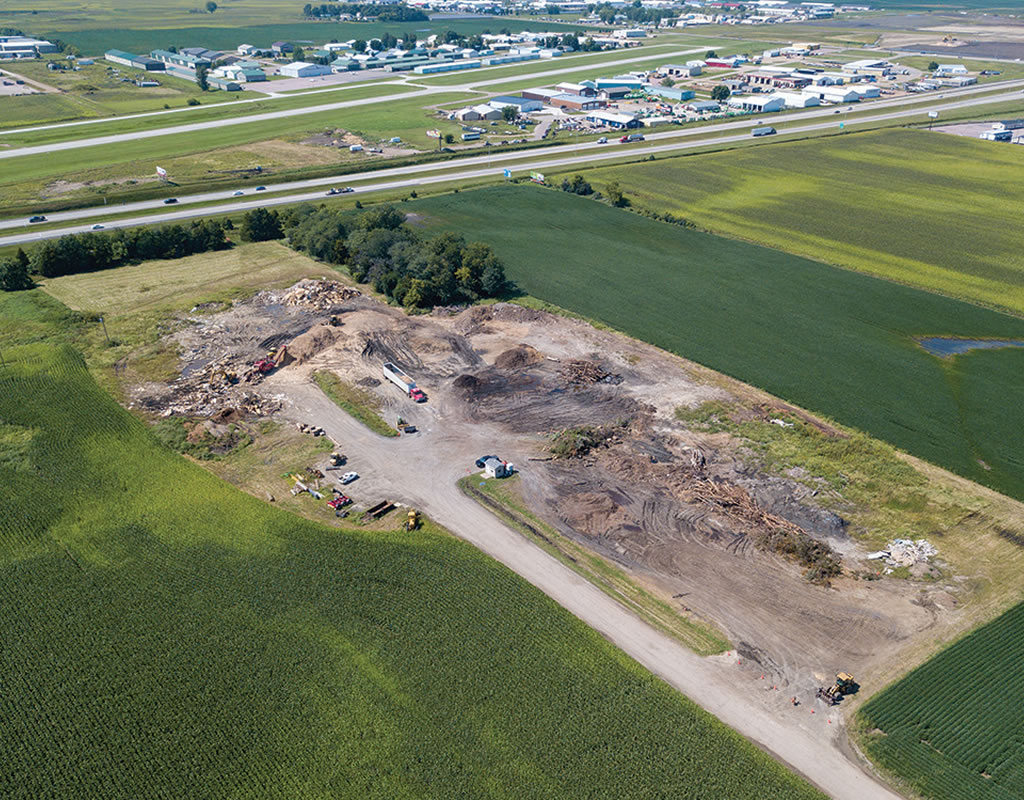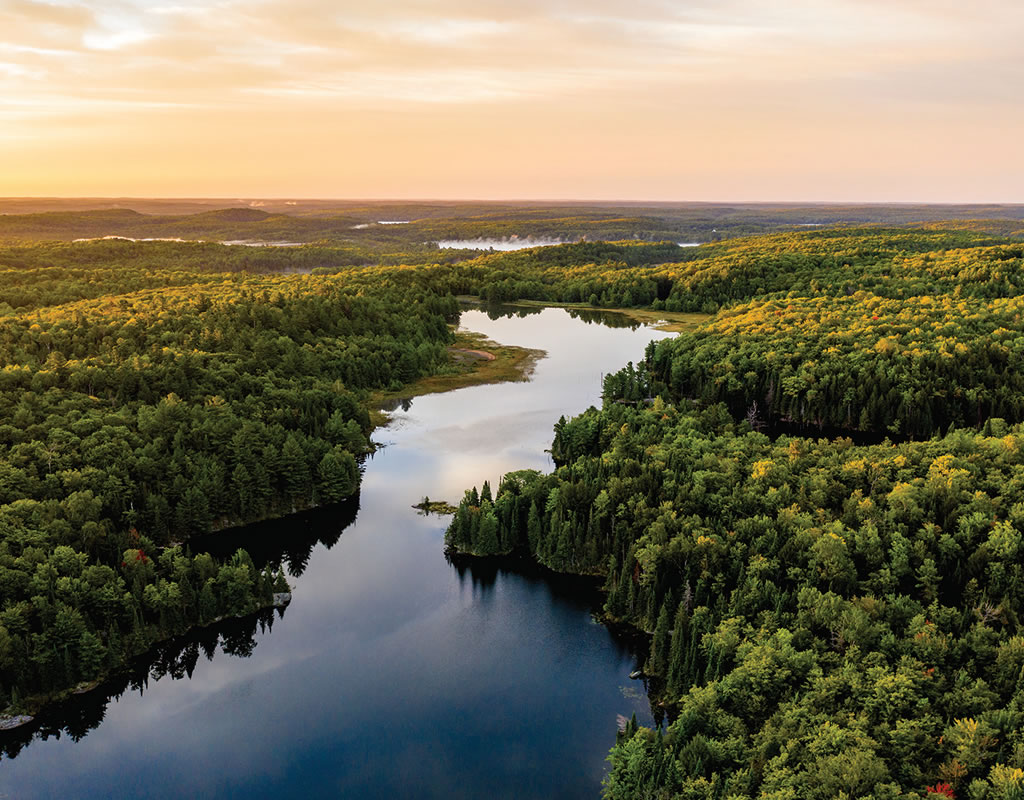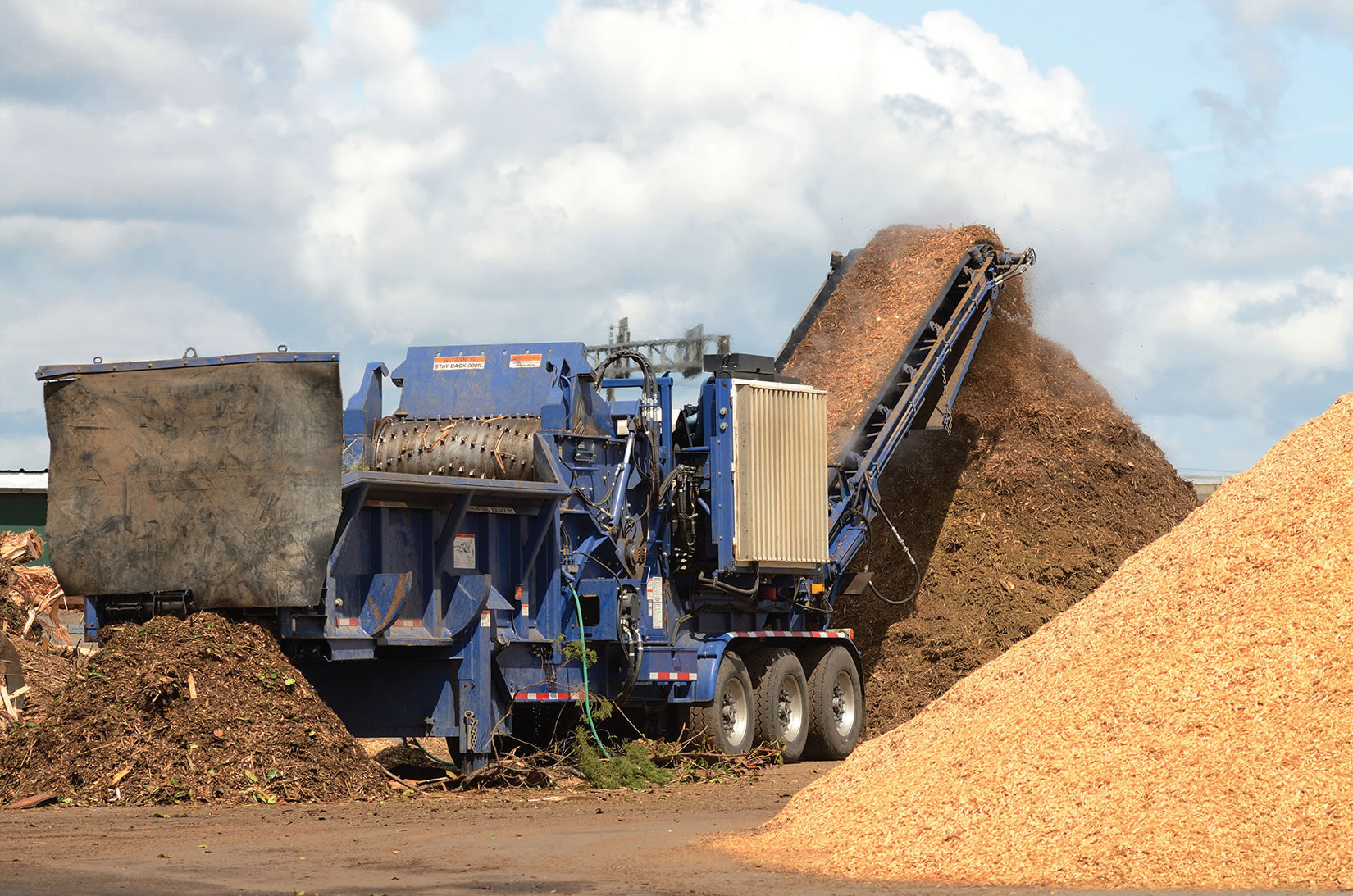By P.J. Heller
Cascade Minerals message for soil manufacturers and compost producers is simple: “rock on.”
And those who are following that advice — by incorporating rock dust into their products — are discovering new ways to market their goods, grow their business and attract a loyal customer following.
“I do really feel like it’s a good selling point for us, for sure,” says Katie Bach of Cascade Compost, a Sumner, Wash., firm that sells potting soils, compost and bark. “There’s not a lot of other potting soils that have the rock dust in it.
“We believe the addition of the Cascade Minerals is a strong selling point for our potting soil. We include it on our printed marketing material and mention it whenever discussing it with potential buyers,” she adds.
Cascade Minerals, based in Madras, Ore., markets its Remineralizing Soil Booster — rock dust made entirely of all-natural volcanic basalt from the Columbia River basalt flow — primarily to soil manufacturers west of the Rockies.
Other companies use basalt or other types of rock, such as granite or volcanic clays or volcanic ash, to produce remineralization products designed to restore depleted minerals in soils. Rock dust contains minerals and trace elements, including calcium, magnesium, manganese and iron, widely used in organic growing practices.
“Basalt is pretty much the king,” notes Harrison Hall, office technician at Cascade Minerals. “It has just the right ratio of silica and calcium. It’s usually going to have 5 percent or more in iron which you won’t see in other types.”
Thomas Vanacore of Rock Dust Local in Bridport, Vt., agrees.
“After nearly 25 years evaluating and working with rock dusts from all over North America, we feel the best rock dusts for soil remineralization are volcanic geologic materials such as the basalts and metamorphic and sedimentary types characterized by a rich diversity in minerals,” he says on his website.
Vanacore describes Rock Dust Local as the first company in North America specializing in local and regional sourcing of rock dust for remineralization.
Cascade Minerals started offering its Remineralizing Soil Booster about five years ago, according to Hall. Cascade Minerals is an offshoot of Central Oregon Basalt Products, whose main focus is mining a quarry for 30- to 50-ton rocks of high-quality, dense basalt for jetty projects on the West Coast. When it was realized that the basalt contained a high mineral content, studies were launched to see if smaller rocks could be ground up and added to soils.
“We have an agronomist here and he set up some experiments in a greenhouse to make sure it was all done properly and it worked,” Hall recalls. “We pretty much went from there.”
While the quarry operation for the jetty rocks is ongoing, smaller rocks are ground down into gravel for transport to the company’s plant, where it is then further refined. Rather than producing rock dust that is entirely small particles or “floury fines,” the soil booster contains a balanced blend of floury fines and coarse grit.
“The smaller particles release essential minerals immediately, while the larger pieces erode more slowly thereby releasing more minerals over time,” the company explains.
An analysis provided by Cascade Minerals says 28 percent of the particles are grit size 16 (which break down into smaller sizes); 45 percent are between grit size 20 and 50 (about the size of sand); 11 percent are smaller than grit size 50 but larger than grit size 200 (smaller than sand but larger than clay), and the remaining 16 percent are considered superfine and will pass through 150 and 200 mesh screens.
Despite the benefits of rock dust being touted for more than a century, Hall and others say it is still an up-and-coming soil amendment.
“Definitely,” he says of its growing popularity. “We’re seeing lots more people get interested in it. A while back we gathered some data on what comprised a healthy soil and found 40 percent of it coming from rock or volcanic activity.”
Cascade Minerals sells its products in 10- and 44-pound bags as well as 1 ton totes. It ships about 100 tons of rock dust a year, Hall estimates.
The benefits of rock dust for agriculture production were first reported in Julius Hensel’s 1892 book Bread from Stones.
His findings showed that using rock dust improved agriculture yield, improved nutritional content, made crops more resistant to disease and pests and improved the health of people and animals who consumed materials grown with it. He also found that rock dust improved the condition of the soil by restoring depleted minerals.
Other studies throughout the world over the last century have proven the value of rock dust, according to its proponents.
Convincing people of the benefits of rock dust usually just entails “showing them the difference in yields,” Hall says.
Even so, getting the word out about rock dust can be a challenge. A post about rock dust on the website for public television’s Growing a Greener World was headlined “The Most Important Soil Amendment No One Ever Talks About.”
“We‘ve taken some great potting soils and added minerals to them and shown that you can get a much better yield using this already great potting soil by just adding some minerals to it,” Hall says. “They’re already great potting soils but they could perform better.”
That was the case with Cascade Compost, which discovered rock dust at a trade show about 18 months ago. Cascade Compost is owned by Corliss Resources, Inc., which has been doing business in Pierce, King and Kitsap counties in Washington for nearly a century.
“We were in the process of formulating a potting soil. We wanted to create a premium high-end local potting soil. We put together some samples with our mix and added Cascade Minerals and sent them into a lab. The results were favorable and the costs were reasonable,” Bach says.
“I would say it will generally improve the product at hand,” agrees Michael Beck, national sales manager for Royal Gold in Arcata, Calif., a “craft soil producer” of coco fiber and coco fiber-based potting mediums.
“I find it a great product . . . “ Beck says. “When we have conversations with people who know the industry and know rock dust products, they‘re all very pleased to hear we’re using the Cascade product. It’s got a great reputation among those who know the industry.”
Royal Gold incorporates rock dust into all its products except for its pure loose coco. It has been manufacturing coco fiber potting mediums for a decade.
“Our goal is to create a sustainable alternative to traditional bagged soils with specific attention to quality and consistency,” Beck notes.
Rock dust was a good fit for its products, particularly with its balance of minerals and its extra iron content.
“When you’re starting off building a soil from inert organic matter like coco fiber, you’re looking to create something that mirrors what would naturally be in a soil,” he explains. “When you look at soils, it varies a lot from place to place and environment to environment. The general concept is you have some mix of organic matter and mineral content. We’re trying to build a comprehensive manufactured medium that mirrors the functionality of traditional soil so we wanted to incorporate that mineral aspect in a way that’s as similar and functional.”
Royal Gold distributes its products nationwide.
Beck says that while people do not call and specifically ask for rock dust, he attributes the success of Royal Gold to the overall performance of its product.
“Our product has emerged as a premium product because of the way it functions,” he says. “Part of that is our the attention to detail in the entire process. It (rock dust) is just the chocolate chips in the chocolate chip cookie; having chocolate chips isn’t going to sell your cookies. It’s difficult to say if any specific amount of sales could be attributed to that.
“I also find that our success is because all of our ingredients are scrutinized on that level and that we only go for the best available of what we are using. We do take the time to test varying products available to us to make the decisions. That‘s why we chose Cascade. We already had a recipe built and chose to use the Cascade Minerals product because it functioned better in our application.
“It comes down to attention to detail and consistency,” he adds. “There’s a lot of variability in the way soils are built and in living organic matter and natural ingredients being assembled like that. The rock dust is just one of the many stable components we‘ve broken it down into to allow us to build a consistent medium.”
Beck says other soil manufacturers could benefit from incorporating rock dust into their products.
“Yes, absolutely,” he says when asked if it would be a good business move. “It‘s one of those things that‘s also very niche, that whole knowledge of rock dust and how it functions and the micronutrient processes. It‘s new knowledge that’s really coming to the forefront of gardening.”
Related News
Subscribe Today
Every other month, Soil & Mulch Producer
News brings you important stories about:
• New Technology
• Products
• Industry News
• Research Studies
Soil & Mulch Producer News features articles and services relevant to your daily operations.





